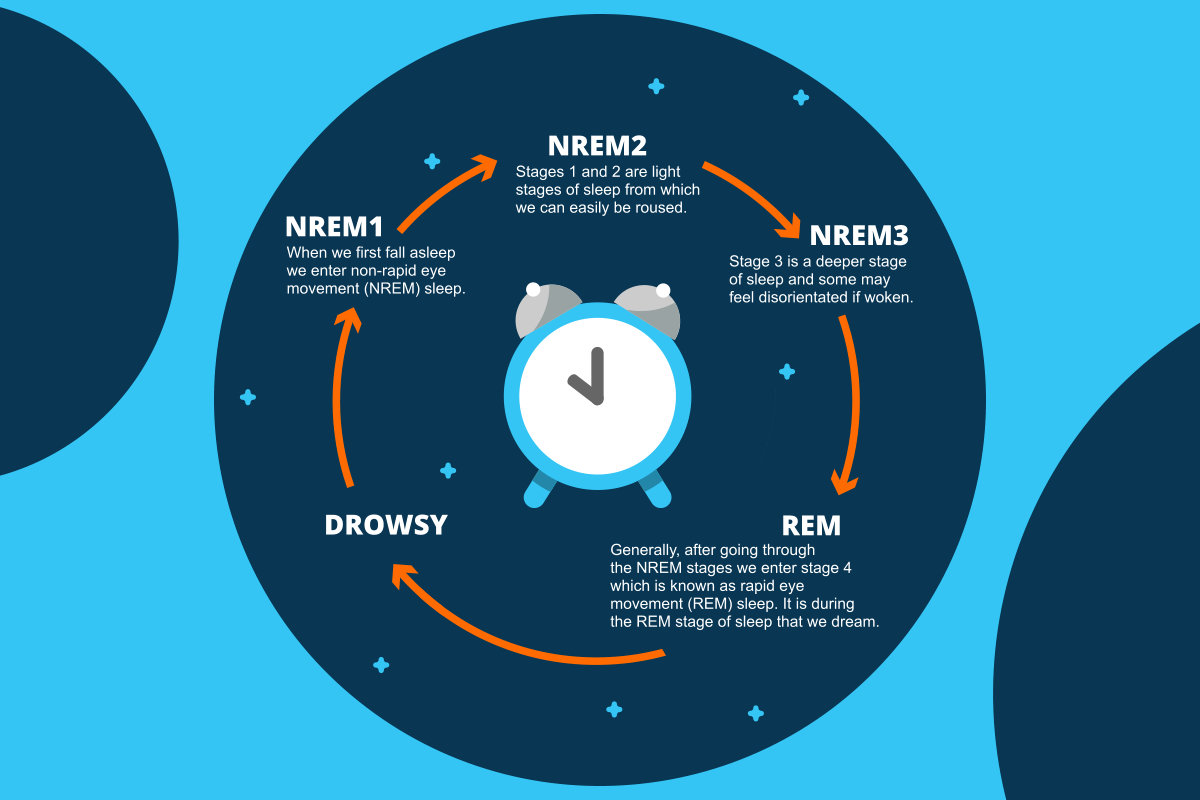Hands up if you’re part of the 3am club? And when we say 3am club, we don’t mean partying until 3, we mean finding yourselves wide awake in the early hours of a morning!
For many of us, 3am is the witching hour, for others it may be 2am or 4am. Whichever it is, it’s important to note that it is relatively common and it is harmless – if you drop back off to sleep soon after. It doesn’t mean you can’t sleep and it doesn’t mean you have insomnia.
Nobody sleeps through the night
Waking up at night isn’t a problem – In fact, we wake several times a night anyway (from noise, partner disturbance or being too hot/cold) and most of the time you won’t even realise – apart from the groggy trips to the loo! Our sleep runs in about 90-minute cycles and within that cycle we go through different stages of sleep. These are punctuated with brief awakenings. As we go through the night we spend more time in lighter sleep which is why brief awakenings can feel more pronounced.
Waking up and staying awake can be a problem
If you wake up and don’t go back to sleep immediately, you may find yourself tossing and turning, thinking about the jobs you need to do tomorrow or watching every minute of the clock change.
You begin to experience worry, anxiety or frustration sending your body into ‘fight or flight’ response. When this happens, your mind may start to race, your heart rate increases and your blood pressure raises.
What not to do
Clock watching: As soon as you start to clock the time, and start worrying about having to get up in another three hours, that’s when the anxiety sets in and prevents us from being able to fall asleep..
Stay in bed: If you can’t get back to sleep within 20 minutes, get up and go do something relaxing – relaxation techniques, reading, making a milky drink in low lighting. Staying in bed awake decreases our sleep efficiency meaning we associate the bed with activities such as being awake, planning, worrying etc and not for sleeping.
How to practice good sleep hygiene
- Consistency is key. Go to bed and get up at roughly the same time, every day to help programme the body to sleep better
- Make sure you give yourself at least 30 minutes to wind down before bed. It’s the time to let go of any worries and negative thoughts and process the day. Choose what works for you whether that’s having a warm bath, meditating, reading or listening to soothing music.
- Bedroom environment. Keep it cool, quiet and dark to stop unnecessary disruptions. Make sure you’re sleeping on a comfortable bed too.
- Keep active. It’s well known that people who exercise regularly tend to sleep better. Releasing pent up tension through exercise is also highly beneficial, helping to banish stress before bedtime.
- Avoid screen time before bed. Try to resist picking up your phone to scroll through social media or emails and consider switching off the TV too. The blue light hinders melatonin production and the content stimulates the brain making it feel more alert.
Rule out any underlying health conditions
There are a few medical conditions that can contribute to difficulty falling asleep and staying asleep including sleep apnoea. If you persistently have trouble with sleeping through the night, the next steps would be to see your GP to consider any underlying causes and to discuss options which could include cognitive behavioural therapy.

